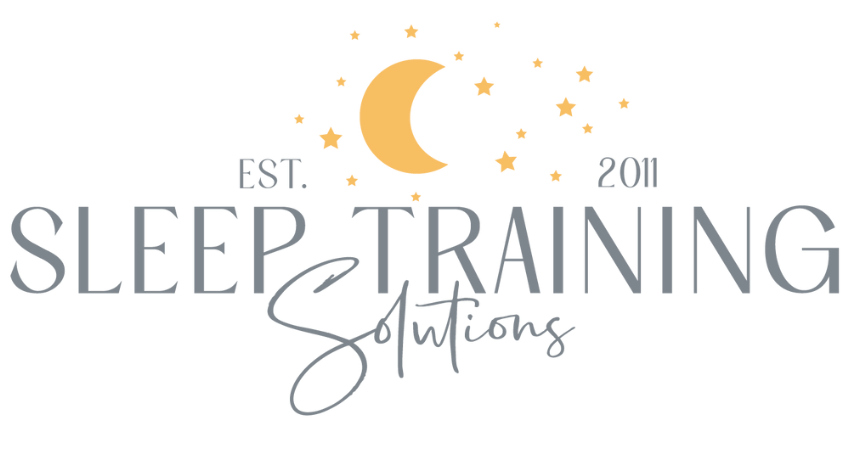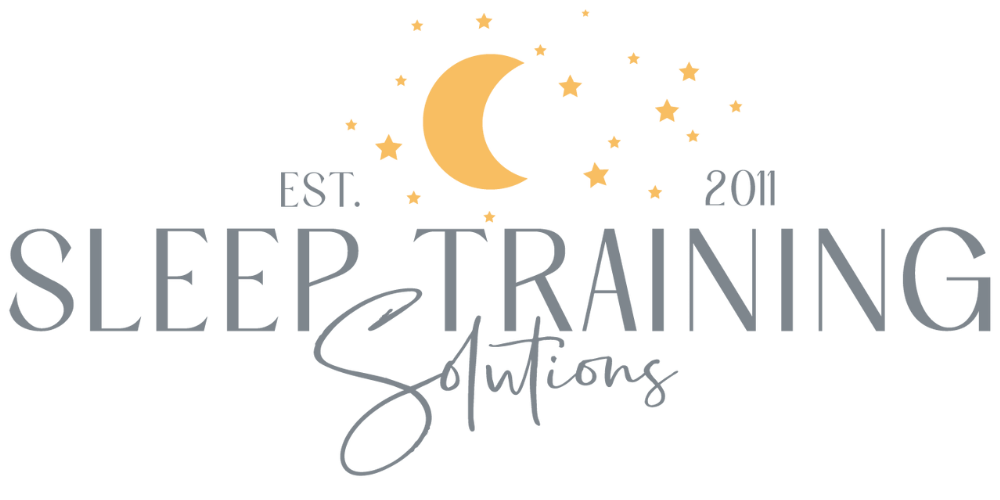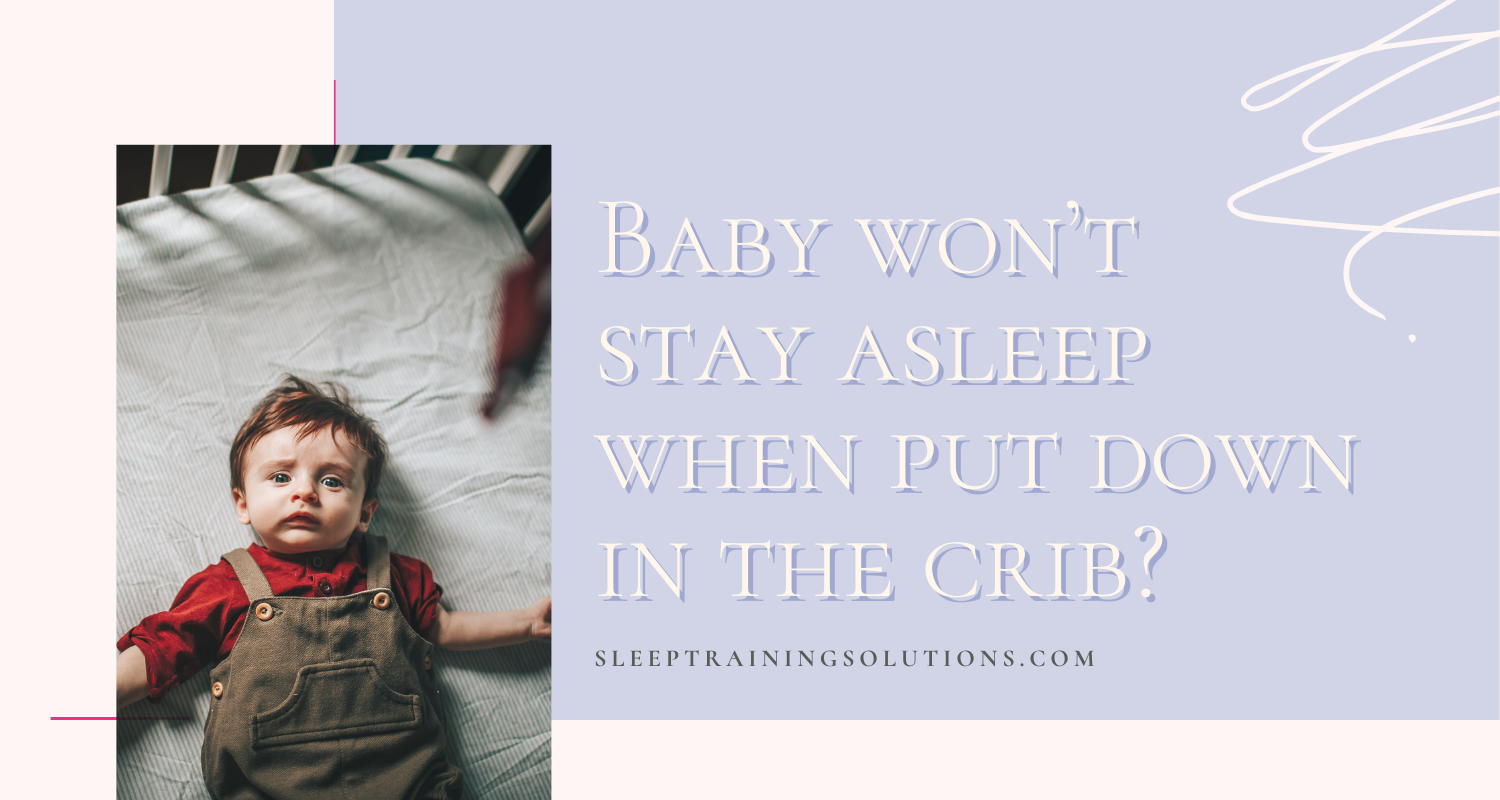Will You Need to Sleep Train More Than Once?
When I work with families to sleep train their children, I often get asked, “Once I do sleep training, will I ever need to re-sleep train?” And my answer is always…it depends. You may need to sleep train more than once after one of the events below occurs!
Here are 6 reasons why you may need to re-sleep train:
#1 New baby in the house
If you sleep-trained your first child and had very few issues in the sleep department until a) you started talking about the new baby coming or b) the new baby arrives, you’re not alone!
Child #1 is no longer the center of attention after 1-2 years (or more!) of being your only focus.
So as you get closer to having the baby, be intentional with the time you spend with your child. As you’re finishing up preparing the new nursery, include your child (depending on his age) so he knows he’s not being left out. Start some new traditions that you’ll be able to continue after the baby arrives.
Here is a blog on 5 Tips to Help Prepare Your Older Child Prepare for a New Baby.
Once baby is home and friends and family are stopping by to see the new little one, the best advice I got many moons ago was to have the visitor greet your older child FIRST, before oohing and ahhing over the baby. If they bring a little gift for your child along with the baby gift, that’s a bonus!
But despite all your intentional behavior to have your oldest feel included, there’s a chance he’ll act out, looking for more of your attention…and this is often around sleep time. He may be aware that the baby is sleeping in your room in a bassinet - and wants to sleep in your room. Or sees how you’re always holding or feeding the baby and gets more clingy.
The most important thing to do once the baby arrives is 1-1 playtime just with your older child. For this special playtime, the new baby is with the other parent (or another adult) and you have dedicated time JUST playing with your first child. This will help fill his attention bucket so he’s less likely to push back at naptime and bedtime.
Try not to let guilt (of bringing another child into the house so your first child will now be sharing your attention) set in so you start letting your oldest get away with things in the sleep dept you never did before. This is a contributing factor why parents need to re-sleep train child #1. Keep as many things consistent as possible (including the bedtime and naptime routines and your general expectations and rules around sleep) because your child will find comfort that many things are staying the same…even if there’s a loud newborn now in the house!
#2 You’ve loosened the expectations
Life happens. Work gets hectic and you’re getting home late every night, you have a revolving door of visitors staying with you who want to explore and go out for dinner, or you’re juggling all your responsibilities and feeling like something has to give…
Your child picks up on your anxiety or tiredness and runs with it, asking to watch one more show before bed (and it’s already past her bedtime) or for you to lay down with her until she’s asleep. And next thing you know, it’s been 3 months and you’re now in a completely different place than you were after sleep training when things went soooo smoothly.
In this situation, you’ll need to make the decision to re-sleep train and stick to it. I completely understand why people get off track with their child’s sleep, but just remember that when your child goes to bed quickly and easily, it’ll actually make your life easier!
#3 Your child’s been sick
If your child gets a little sniffle, I always encourage parents to stick to their sleep routines and not reintroduce sleep props. If your child has strong sleep skills, sleeping will be easier for them, even while they’re sick.
But if your child comes down with something more serious, then it’s understandable and expected that you would prioritize making them as comfortable as possible, and may need to monitor them while they’re sleeping, give medicine in the middle of the night, and/or re-introduce night feeds (if your pediatrician recommends it).
In that case, you may need to re-sleep train once they’re feeling better. I typically suggest waiting 24-48 hours once they’ve recovered before rebooting sleep training.
#4 After mastering new skills
If your child is learning a new physical skill - rolling, pulling up, standing, crawling, or walking - there’s a great chance it’ll disrupt sleep because they’re trying to master this new skill!
The key is to practice, practice, PRACTICE outside the crib so they master it quicker!
This post has tips for helping with rolling. Here are videos on helping your child master pulling up and standing, helping your child crawl, and helping your child practice walking.
You may need to re-sleep train if you don’t spend enough time practicing these new skills outside the crib or you may have gotten a little frustrated after going in 47 times to lay your child back down from standing in the middle of the night…and ended up rocking her back to sleep.
#5 Following a regression
If your child is going through a developmental milestone, chances are it’ll affect his sleep.
This is often what happens once the 4-month regression hits and parents try everything and anything to get the baby to sleep. But this regression is different than the ones at later ages because most parents haven’t yet sleep-trained their babies. This is the point when they start sleep training for the first time.
If your child is having a regression at a later age - 6 months, 8 months, 12 months, 18 months and 2 years are common - sleep should only be affected for ~2 weeks.
After that period, if your child’s sleep is still off, then look closely at what you may have introduced during the regression - a new sleep prop? Getting drowsy in the routine? “Accidentally” bring your child into your bed just so everyone can start getting more sleep ;)
In that case, you’d need to re-sleep train.
#6 Changes in normal sleeping environment
This could be something permanent, like moving houses or starting daycare, or a temporary change like going on vacation.
Here is a post with tips on moving with your child so that your little one can adapt faster to the new environment.
If your baby is starting daycare and has been sleep-trained, the transition may be bumpy but if you and the daycare providers are on the same page regarding sleep (i.e. not reintroducing feeding to sleep/drowsy, etc), it shouldn’t take long for your child to get used to sleeping in this new environment. Here is a post with tips on improving naps at daycare.
If you traveled with your child and she decided she liked sleeping in the same hotel room (or bed!) as you and wants to continue doing that at home, you’ll need to re-sleep train.
To help keep things more consistent while traveling, I have a Travel with Littles Guide that covers each sleep scenario while traveling by car or plane.
If one of these is an issue at your house and you’d like personalized help navigating it so sleep can get back on track, I’m here to help!
Related Posts:
This post is for informational purposes only and may not be the best fit for you, your child and/or your personal situation. It shall not be construed as medical advice. The information and education provided here is not intended or implied to supplement or replace professional medical treatment, advice, and/or diagnosis. Always check with your child’s physician or medical professional before trying or implementing any information read here.





